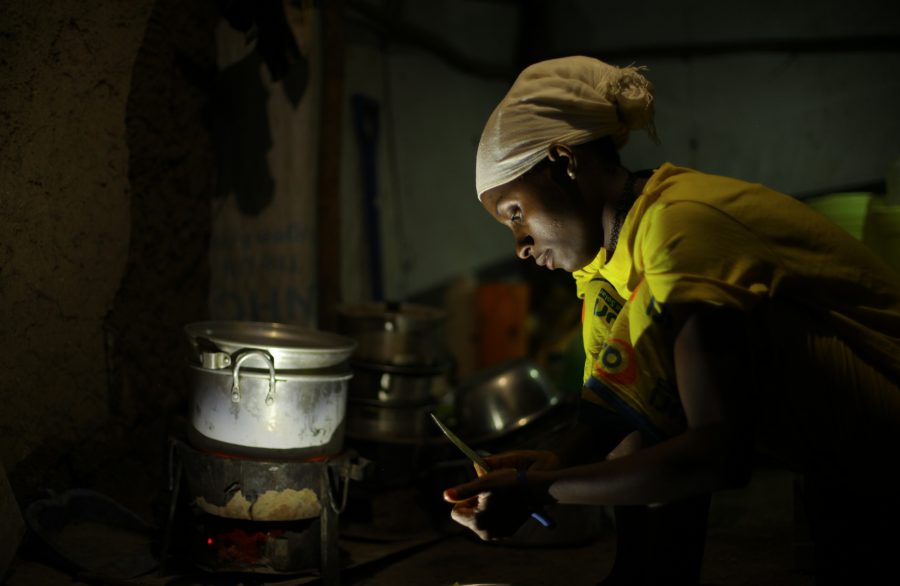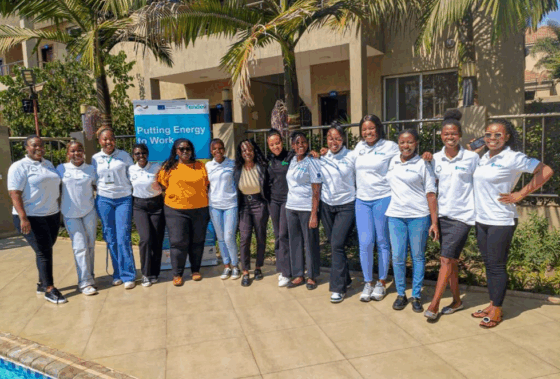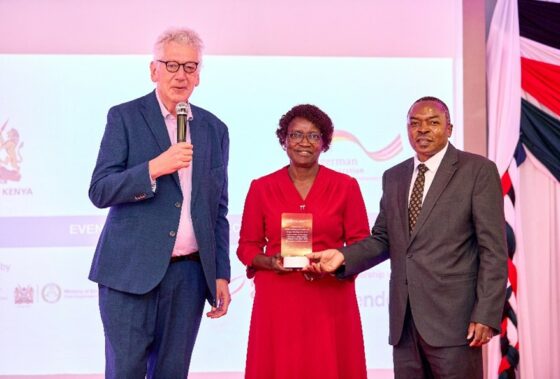Empowering businesses in Kakuma refugee camp: the market opportunity for clean energy solutions

In early 2020, SNV ran a market survey among 859 businesses in Kakuma refugee camp and Kalobeyei Integrated Settlement (‘the camps’) in Turkana County, Northern Kenya.
The goal of the survey was to gather data and information about energy access among the camps’ business community and inform future interventions and market development activities.
The survey report presents the findings and provides recommendations on how clean energy suppliers can tap into this market opportunity and enable refugee entrepreneurs to access electricity and clean cooking solutions for their businesses. Survey results show that more than half (54%) of businesses in the camps use electricity for their business operations. 73% would like to obtain (additional) electricity access to have longer opening hours and expand their product and service offering, and 58% of businesses involved in cooking would like to switch to new cookstove types.
Kakuma refugee camp and Kalobeyei integrated settlement host approximately 192,000 refugees. Despite the restrictions for refugees to move around and engage in formal employment, a vibrant informal economy consisting of more than 2,500 (micro) businesses has developed throughout the years. These enterprises provide a variety of products and services including food, electronics, phone charging, tailor, and barber services to the refugee and host communities in the area.
Notwithstanding the economic activity, energy access is a challenge in the camps and is often supplied through expensive and unreliable informal diesel mini-grids and standalone generators. A hybrid solar mini-grid is in place but only connects one of the three villages in Kalobeyei settlement. This lack of sustainable and reliable energy supply constrains the businesses in the camp and settlement to expand their income-generating activities. Also, owners of cooking businesses are at risk due to inefficient and unhealthy cooking practices.
Business survey
The Market Based Energy Access Project promotes the uptake of cookstoves and solar energy to households, businesses and social institutions. To gain more insight on the electricity and cooking requirements of the businesses operating in the camp and settlement, SNV surveyed 859 businesses operating in the camps on their energy usage and demand.
Results
Electricity
The survey found that the majority of surveyed businesses use electricity (54%), but dependency on diesel remains. Basic activities such as lighting and phone-charging are powered by small solar-powered systems. while larger power-intensive appliances such as fridges are powered through generators and informal diesel-mini grids. Businesses connected to generators and informal mini-grids receive limited, unreliable electricity supply at a high cost. 64% of businesses would like to use additional appliances such as fridges, TVs and audio systems. The businesses currently not using electricity expressed a desire to use electricity for lighting, phone-charging and cooling to enable longer opening hours and increased product/service offering. High costs and unavailability of products are currently preventing them from doing so.
Cooking
Looking at the cooking practices of those enterprises involved in cooking, 96% reported using (basic) charcoal stoves, wood stoves and/or three stone open fires for cooking. Businesses mainly use firewood and charcoal at a high cost: 50% of the businesses spend more than KSh1,000 per month on fuel (with the majority of restaurant businesses earning less than KSH10,000 per month). A majority expressed a desire to switch to other stove types, primarily (improved) charcoal, bioethanol, or LPG stoves. The high upfront purchasing price of these stoves and lack of availability were identified as key barriers preventing businesses from switching.
Recommendations
The findings inform several recommendations to meet the energy and cooking requirements of businesses in the camps. The business case for alternative energy access solutions and their benefits need to be promoted, enabling businesses to maximise the return on investment and productive use of available products. Businesses without access to energy should be brought onto the ‘energy ladder’ with basic, small-scale solar products.
As interest in alternative fuels exists among cooking businesses, efforts need to focus on promoting the market entry of alternative fuels while addressing the high upfront payment barrier with flexible payment mechanisms.
More information
For more information about the businesses operating in Kakuma refugee camp, their use of electricity and cooking practices, and the market opportunity for clean energy suppliers, read the full business survey report.

